Boston
History
Boston, the capital city of the Commonwealth of Massachusetts, has a rich and varied history that dates back to its founding in 1630. The city was originally a trading post and a religious refuge for Puritans fleeing persecution in England. The city's growth and development were significantly influenced by its strategic location on the Atlantic Ocean, which facilitated trade and commerce with Europe and the rest of the world.
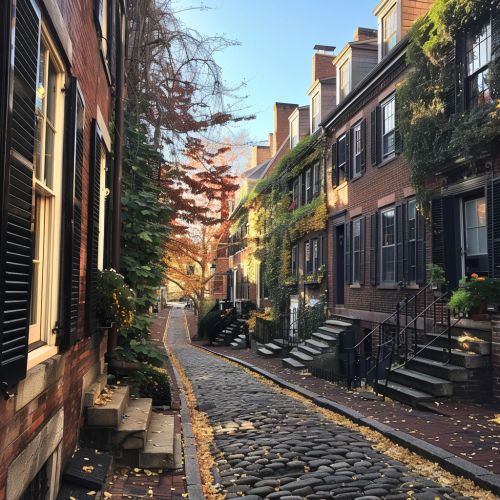
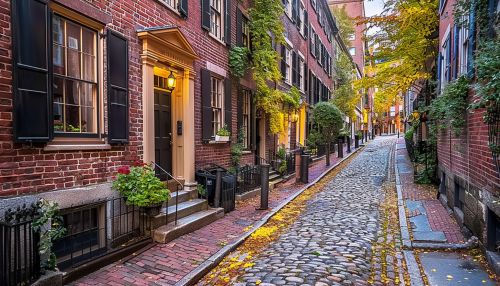
The city played a pivotal role in the American Revolution, with key events such as the Boston Massacre, the Boston Tea Party, and the Battle of Bunker Hill occurring within its borders. These events were instrumental in galvanizing colonial opposition to British rule and led to the outbreak of the Revolutionary War.
In the 19th century, Boston became a hub for social and political change. The city was a hotbed of abolitionist activity in the years leading up to the American Civil War, and it was also a major destination for immigrants, particularly those from Ireland and Italy. The influx of immigrants significantly shaped the city's culture and demographics, contributing to its diversity and vibrancy.
The 20th century saw Boston transform into a major center for education and healthcare, with the establishment and growth of world-renowned institutions such as Harvard University and the Massachusetts General Hospital. The city also experienced significant urban renewal projects and population shifts, which have shaped its current landscape.
Geography
Boston is located in the northeastern United States, on the eastern coast of Massachusetts. The city is characterized by its hilly topography and its numerous bodies of water, including the Charles River and the Boston Harbor. The city's geography has significantly influenced its development, with the harbor facilitating trade and the hilly terrain shaping the city's distinctive street layout.
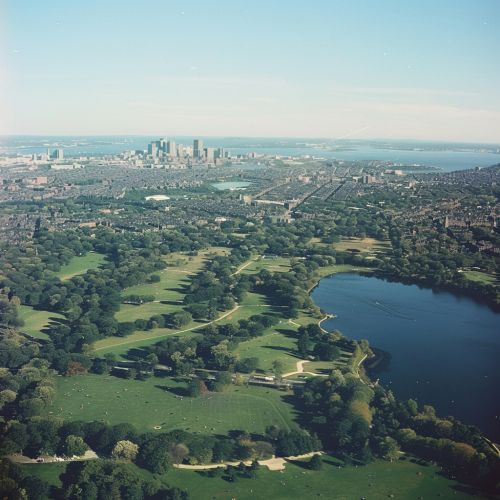
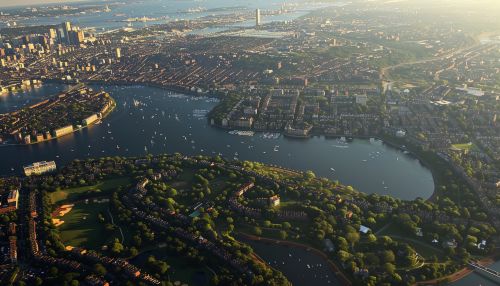
The city is divided into 23 official neighborhoods, each with its unique character and history. These include the historic Beacon Hill, known for its Federal-style rowhouses and narrow, gaslit streets, and the vibrant North End, Boston's oldest residential community where Italian immigrants settled in the late 19th and early 20th centuries.
Boston's climate is classified as a humid subtropical climate, with warm, humid summers and cold, snowy winters. The city's coastal location moderates its climate but also makes it susceptible to nor'easter weather systems that can produce much snowfall.
Economy
Boston's economy is one of the largest and most influential in the United States. The city is a global hub for education and healthcare, with its universities and hospitals among the top employers in the city. Boston is also a major center for finance, technology, and biotechnology, with many leading companies in these sectors headquartered in the city.

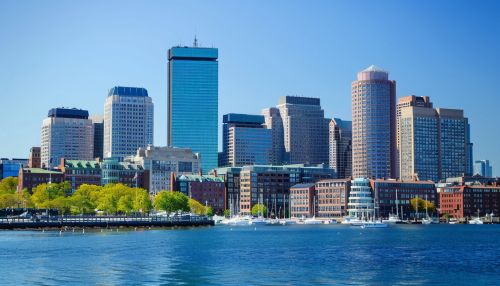
The city's strategic location on the Atlantic Ocean has made it a major seaport and a hub for international trade. The Port of Boston is one of the busiest ports in the United States, handling millions of tons of cargo each year.
Tourism also plays a significant role in Boston's economy. The city's rich history, cultural institutions, and sports teams draw millions of visitors each year. Key attractions include the Freedom Trail, a 2.5-mile-long path that passes by 16 locations significant to the history of the United States, and Fenway Park, home of the Boston Red Sox.
Culture
Boston is renowned for its cultural institutions and its contributions to American arts and culture. The city is home to numerous museums, theaters, and music venues, and it has a vibrant literary and music scene.
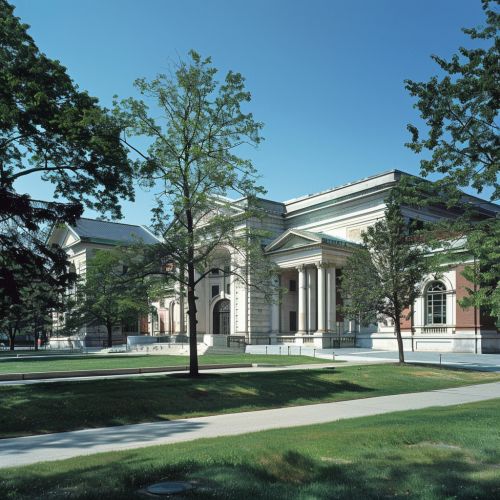
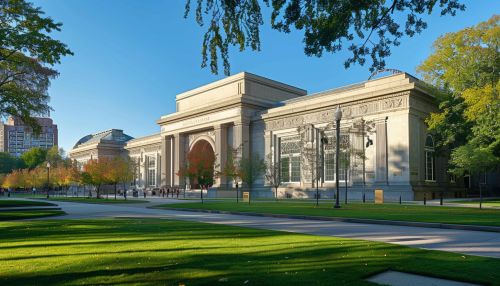
The Museum of Fine Arts and the Isabella Stewart Gardner Museum are among the city's most prestigious cultural institutions, housing extensive collections of artworks from around the world. The city's theater district hosts a range of performances, from Broadway shows to local productions.
Boston has a strong literary tradition, with many famous authors, including Edgar Allan Poe, Henry David Thoreau, and Louisa May Alcott, having ties to the city. The city is also known for its music scene, particularly in the genres of classical music, with the Boston Symphony Orchestra being one of the "Big Five," a group of the most prestigious American orchestras.
